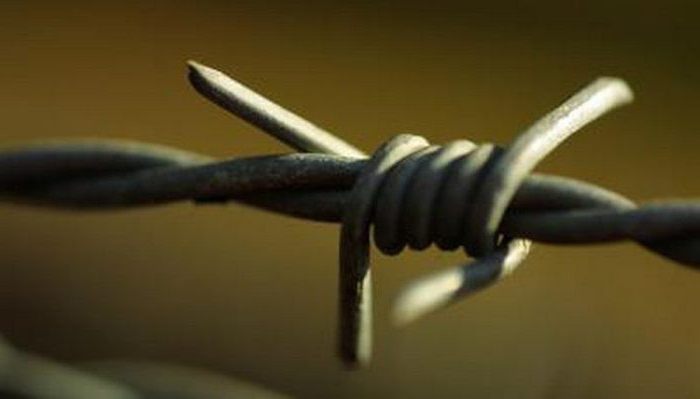Any citizen who has committed a crime must be punished in accordance with applicable law. AT Art. 44 of the Criminal Code The list of criminal sanctions allowed for application in the framework of criminal proceedings is fixed. Consider the provisions of the norm in more detail. 
Art. 44 of the Criminal Code: types of punishments
The following may be applied to entities that have committed a criminal act:
- Fine.
- The prohibition to conduct certain activities / replace individual posts.
- Deprivation of military, special or honorary title, state awards, class rank.
- Mandatory work.
- Correctional work.
- Military restriction.
- Restriction of freedom.
- Forced work.
- Arrest.
- Placement in a disciplinary military unit.
- Imprisonment for a period established by a court.
- Life imprisonment.
- The death penalty.
Art. 44 of the Criminal Code with comments
The norm under consideration enshrines a system of criminal sanctions that reflects the key principles of modern law. First of all, we are talking about the principles of legality, humanism, justice, individuality of punishment and differentiation of responsibility. 
The sanctions system provided for in new edition of Art. 44 of the Criminal Code, constitutes a mandatory and exhaustive list. The punishments in it are fixed in the order of tightening - from the softest to the most strict.
Sequence set Art. 44 of the Criminal Code, is also applied in the norms of the Special Part. From this we can conclude that modern criminal law aims the courts to apply as few sanctions as possible to the perpetrators.
Specific punishments
Sanctions enshrined in Art. 44 of the Criminal Code, are in some proportion and subordination. Some may be designated solely as primary, others only as additional. Separate sanctions are allowed to be imputed to all convicts, and some to only certain citizens for infringement of specific values, interests or relations.
Classification
All punishments can be divided depending on the subject of influence on general and special. The first include those sanctions that can be imputed to any guilty entities. For example, one of the most popular punishments of all that are provided for in Art. 44 of the Criminal Codeis considered a fine. It can be assigned to all those responsible.
Special sanctions, respectively, may apply to a specific group of persons. For example, restriction of service may be imputed only to servicemen who are in the ranks of the armed forces under a contract. 
Time differentiation
Depending on the duration of serving the sentences are divided into simultaneous and urgent. Among the latter include those for which the Special Part has a minimum and maximum term. They, in particular, are:
- Mandatory, forced and corrective labor.
- Service Limit.
- Arrest.
- The room in the disciplinary unit.
- Restriction / deprivation (including life) of freedom.
Separate punishments do not provide for the establishment of specific dates. For example, they include fines, the death penalty and some other sanctions enshrined in Art. 44 of the Criminal Code.
Level of educational impact
Three categories of criminal sentences are distinguished depending on him:
- Not accompanied by restriction of freedom or its deprivation. As part of this group, a fine, a ban on conducting activities or filling posts established by a judge, deprivation of a military or other rank, correctional, compulsory work, and a number of others.
- Assuming restriction of liberty or deprivation of it.This group includes forced labor, imprisonment, including life imprisonment, placement in a disciplinary unit, arrest, etc.
- The exclusive punishment is the death penalty.

General rules of appointment
The size and type of punishment is determined solely by the court. They are reflected in the sentence. In imposing a sentence, the court should be guided by the norms of the law and the explanations of the Plenum of the Armed Forces.
For a specific crime, only the sanction that is provided for in the relevant article of the Criminal Code (in the Special Part) can be imputed. In exceptional cases, the court may go beyond the sanction. In addition, the imposition of a sentence allows the imposition of sanctions such as a ban on the filling of certain posts or the conduct of certain types of activities, deprivation of rank (special, honorary, etc.), state awards, class rank, even if they are not provided for in the sanction.
The death penalty
It was actively used in ancient Russia. In Russian Truth, the death penalty was not directly established. However, the short version of this normative act allowed the possibility of blood feud.
The death penalty was often used during the reign of Ivan the Terrible, Peter the Great. Before the revolution, there were two types of it - hanging and shooting. After the 1917 Revolution, the death penalty was abolished. However, after 3 years, it was reintroduced.
After the collapse of the USSR, the death penalty was enshrined in the Constitution as a temporary measure. Since 1997, this punishment has been prohibited. The death penalty can neither be appointed nor executed. 
The death penalty was last applied in 1996. The Constitutional Court gave final explanations on issues related to this punishment. In the current list of sentences, the death penalty continues to be present. However, national criminal law has less legal force than the Constitution and the provisions of international treaties expressly prohibiting its use. A ban on the application of this punishment is present in the Vienna Convention, to which Russia is a party.